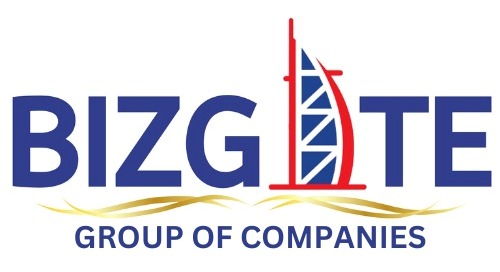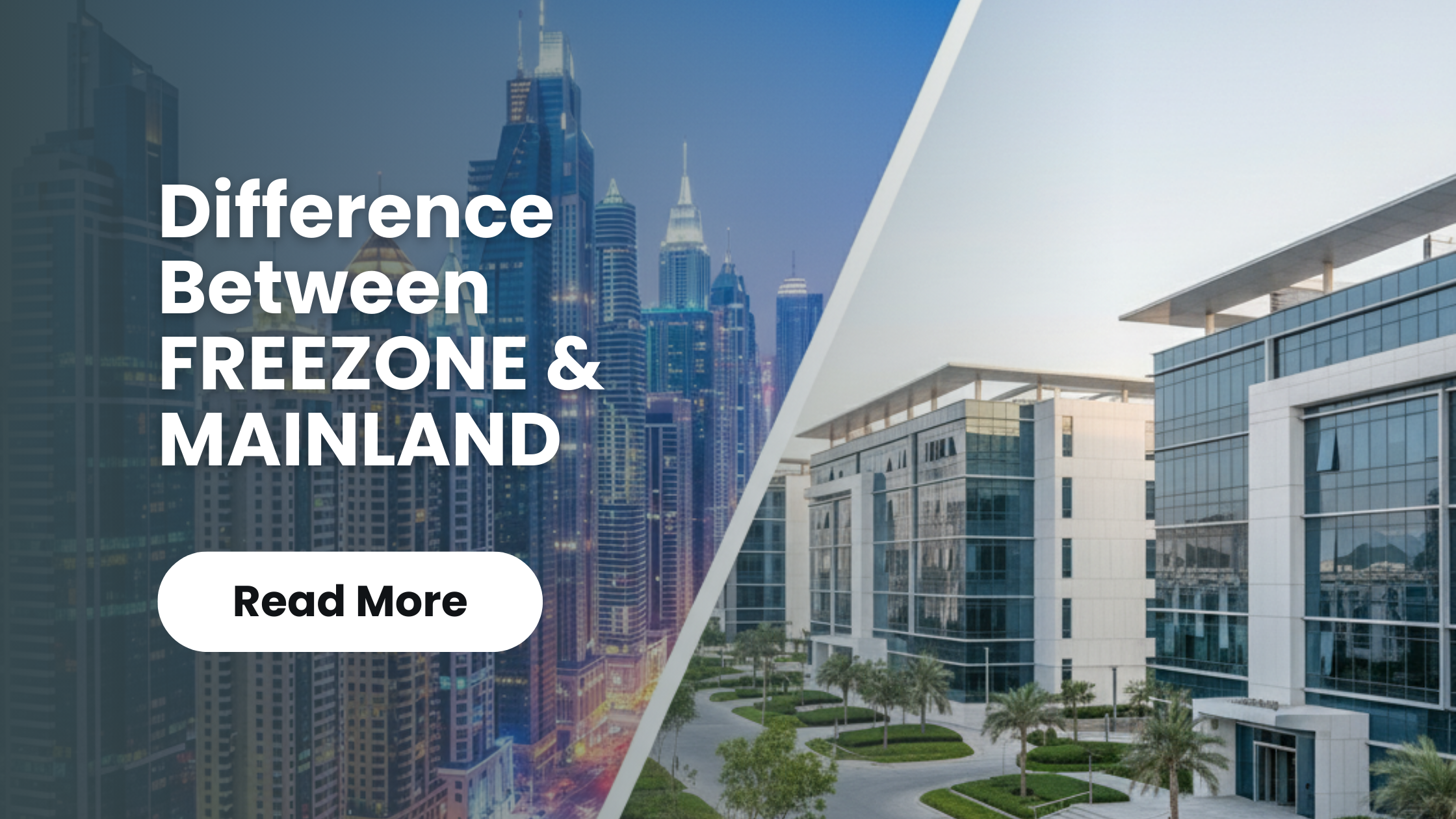Mainland vs. Free Zone: The Definitive Comparison for Your UAE Business
The United Arab Emirates (UAE) has long been a beacon for entrepreneurs and investors worldwide, thanks to its strategic location, pro-business policies, and diverse economy. When considering setting up a business in the UAE, one of the most crucial decisions you’ll face is whether to establish your company in the Mainland or a Free Zone. Both offer distinct advantages and disadvantages, and the “best” choice depends entirely on your business type, target market, and long-term goals.
At BizGate, we understand the complexities of UAE business setup. This guide aims to provide a clear, comprehensive comparison to help you make an informed decision.
Understanding the Basics: Mainland vs. Free Zone
What is a Mainland Company?
A Mainland company, also known as an “onshore” company, is licensed by the Department of Economic Development (DED) in the respective Emirate (e.g., Dubai DED, Abu Dhabi DED). These companies are permitted to conduct business anywhere in the UAE, including within free zones, and internationally, without restrictions.
What is a Free Zone Company?
Free Zones are special economic areas set up with the aim of boosting specific industries and offering incentives to foreign investors. Each free zone has its own independent regulatory authority, rules, and regulations. There are over 50 free zones across the UAE, each catering to different business activities (e.g., Dubai Media City for media, Jebel Ali Free Zone for trade and logistics).
Key Differences at a Glance
Let’s break down the core distinctions between Mainland and Free Zone companies:
| Feature | Mainland Company | Free Zone Company |
| Ownership | 100% foreign ownership allowed. | 100% foreign ownership allowed. |
| Trade Location | Can trade anywhere in the UAE, internationally, and with free zones. | Primarily limited to trading within the free zone or internationally. To trade on the mainland, a local distributor or agent is typically required. |
| Business Scope | Broader scope of business activities. | Specific to the activities permitted by the respective free zone. |
| Office Space | Physical office space required (Ejari registration). | Virtual office/flexi-desk options often available, along with physical offices. |
| Visas | Generally more flexible with visa quotas. | Visa quotas are usually tied to the size of the office space. |
| Capital Req. | Varies by activity, generally higher than free zones. | Generally lower, specific to each free zone. |
| Audit | Annual audit required. | Annual audit required (some free zones have exemptions for certain company types). |
| Corporate Tax | Subject to Corporate tax if taxable supplies exceed AED 375,000. | Subject to Corporate Tax if taxable supplies exceed AED 375,000. Customs duties may apply when moving goods to the mainland. |
| Cost | Generally higher initial setup and ongoing costs. | Can be more cost-effective for initial setup, especially with flexi-desk options. |
Detailed Comparison Points:
1. Ownership and Control
- Mainland: Historically, a significant deterrent for foreign investors was the requirement for a UAE national to hold a 51% stake in most mainland companies. However, recent amendments to the UAE Commercial Companies Law have allowed 100% foreign ownership for many business activities, significantly leveling the playing field. This is a game-changer, especially for professional and commercial licenses.
- Free Zone: 100% foreign ownership has always been a cornerstone of free zones, offering complete control to international entrepreneurs.
2. Scope of Business Activities and Trading
- Mainland: A mainland company offers unparalleled flexibility. You can trade directly with customers across the UAE, open branches anywhere in the country, and participate in government tenders. This is ideal if your target market is the entire UAE population.
- Free Zone: Free zone companies are primarily designed for international trade or business within the specific free zone. If you wish to sell your products or services on the UAE mainland, you typically need to appoint a local distributor, agent, or establish a branch of your free zone company on the mainland (which comes with additional costs and procedures). This can be a limitation if your primary market is local.
3. Office Space Requirements
- Mainland: A physical office space with an Ejari (official tenancy contract registration) is mandatory for mainland companies. This adds to the initial setup and ongoing operational costs.
- Free Zone: Many free zones offer cost-effective options like “flexi-desks” or shared office spaces, which can be ideal for startups and small businesses looking to minimize overheads. However, if your business grows, dedicated office space within the free zone is also an option.
4. Visa Eligibility
- Mainland: Mainland companies generally have more flexibility regarding employee visa quotas, which are typically determined by the DED and Ministry of Human Resources & Emiratisation based on the company’s size and activity.
- Free Zone: Visa allocations in free zones are often directly linked to the size of your rented office space. A flexi-desk might only entitle you to 1-3 visas, while a larger office will grant more.
5. Cost Considerations
- Mainland: While the benefits of mainland operations are vast, they generally come with higher setup and annual renewal costs, mainly due to mandatory office space and potentially higher license fees.
- Free Zone: Free zones can often be a more cost-effective entry point into the UAE market, especially for startups, due to competitive license packages, flexi-desk options, and streamlined registration processes. However, transferring goods to the mainland can incur customs duties.
6. Industry Focus
- Mainland: Best suited for businesses that require direct access to the wider UAE market, such as retail, restaurants, construction, general trading (selling directly to consumers), and services targeting the local population.
- Free Zone: Ideal for businesses focused on specific sectors like media, technology, logistics, finance, healthcare, and education, particularly those with an international client base or looking for specific industry ecosystems. Examples include JLT, Dubai Media City, DIFC, etc.
Making the Right Choice with BizGate
Choosing between a Mainland and Free Zone setup is a pivotal decision that will shape your business’s future in the UAE. There’s no one-size-fits-all answer.
To make the best choice, consider:
- Your Business Activity: What services or products will you offer?
- Your Target Market: Are you targeting local UAE customers, international clients, or both?
- Your Budget: What are your initial and ongoing financial capabilities?
- Your Need for Control: Is 100% ownership paramount? (Remember the recent mainland reforms!)
- Your Expansion Plans: Do you envision opening multiple branches across the UAE?
This can be a complex decision, but you don’t have to navigate it alone. BizGate specializes in business setup in the UAE, offering expert guidance and comprehensive services for both Mainland and Free Zone company formations. Our team will:
- Understand Your Business Model: We’ll conduct a thorough assessment of your specific needs.
- Recommend the Optimal Solution: Based on your goals, we’ll advise whether a Mainland or Free Zone setup is more advantageous.
- Handle All Documentation: From license application to visa processing, we manage the entire setup process efficiently.
- Provide Ongoing Support: We ensure your business remains compliant with UAE regulations.
Ready to take the next step in establishing your business in the dynamic UAE market?
Contact BizGate today for a personalized consultation, and let us help you lay the foundation for your success!



